Diversity Discourses
News
Current events
No further Diversity Discourse events are currently planned. The last event is the final event, which will take place in 2026. We will inform you here as soon as more specific information is available.
Previous events
In our sixth and final discussion round on Tuesday, July 1st, 2025, we talked with eight experts about how science and science communication can contribute to reducing discrimination. Nearly 40 people participated in the event.
These experts shared their knowledge with us during the event:
- Dilara Kanbiçak (Diversity Policies Consultant, Goethe University Frankfurt)
- Prof. Dr. Natasha A. Kelly (Visiting Professor of Cultural Studies, Studium Generale, Berlin University of the Arts, Building Black Studies project)
- Philipp Schrögel (Visiting Scholar at Chemnitz University of Technology in the PartWiss project on participation in research)
- Dr. Julia Partheymüller (Political Scientist / Senior Scientist at the Institute for Political Science, University of Vienna)
- Dr. Petra Tzschoppe (Researcher in the field of sports economics and sports management, University of Leipzig, research on misanthropic attitudes and discrimination in organized sports)
- Isabelle Diekmann (Communications Department at Osnabrück University of Applied Sciences, responsible for science communication)
- Dr. Lisa Tölle (Researcher at the Institute for Special Education at the University of Education Freiburg, “Moms@Science” project)
- Dr. Lara Altenstädter (Head of the Transfer Division at the German Institute for Interdisciplinary Social Policy Research, DIFIS)
The diverse perspectives contributed to the topic being examined and reflected upon from various angles. The challenges that science and science communication pose in relation to discrimination were described in advance and presented as the basis for the discussion. These include, for example, the output-oriented concept of excellence and the lack of representation and visibility of marginalized groups at universities, the person-dependent and precarious nature of projects, the lack of structural recognition of science communication, and hostility/ignorance toward science and hate speech in response to scientists and science communication in the field of diversity and (anti-)discrimination. At the beginning of the discussion, the experts made it very clear that science and society are not separate areas, but are interrelated and cannot be viewed in isolation from one another.
They emphasized that the prevailing image of male, white scientists who do not do any care work must be deconstructed and replaced by the image of diverse perspectives and life realities that scientists bring with them. Science should not cling to the prevailing results-oriented approach, but instead see itself as a process of knowledge generation, whereby knowledge can be diverse (e.g., visual knowledge, experiential knowledge, etc.). This raises questions such as “Who creates knowledge and for whom?” and “What do we recognize as scientifically relevant knowledge?” . Sustainable diversity policies are needed to truly anchor these perspectives in universities. If science is to be trustworthy, it must also be organized in a trustworthy manner. This means that the academic system needs working conditions and structures that remove barriers for marginalized individuals and create the conditions for everyone to learn and work safely. If science is not neutral and random, neither is science communication. It is also not the result of individual stage presence, but depends on structural barriers and exclusions. Furthermore, science communication requires resources (time, expertise, etc.) that are not available to many researchers in sufficient quantities. However, when relevant social issues are presented to the public on the basis of facts, they have the potential to steer the highly emotion-based discourse. A comprehensive approach is needed that makes many dimensions of diversity accessible and does not get bogged down in theory, but rather enables action.
The solutions proposed in the field of science and the academic system included, for example, making positions permanent (e.g., discrimination officers), removing time limits on researchers' contracts two years after completing their doctorates, evaluating procedures, monitoring, stronger networking and interdisciplinarity (so that areas of knowledge do not disappear when individuals leave the university), a stronger focus on securing and measuring project results, and greater involvement of colleagues from the field. In the area of science communication, the experts mentioned, among others, discussing content in safe spaces with specific target groups, using established communication formats (with new people and perspectives), preparing researchers through media training and ongoing support from the institution as a backup in cases of hate speech, a crisis communication concept, and making obstacles and exclusions visible.
Several contact points and projects were mentioned that researchers can turn to or where interested individuals can obtain further information:
- Each One Teach One e.V. is a community-based education and empowerment organization, as well as a place of learning and socializing for people of African background. The association organizes, supports, and promotes events such as sociocultural counseling, language courses, workshops, meetings as safe spaces (e.g., for queer, trans*, and gender-questioning Black people), and the BLACKADEMIA, the Black Studies and Scholarship Fair.
- Scicomm supports and advises scientists and science communicators in cases of attacks and unobjective conflicts in science communication.
- EXENKO – Exzellenz entdecken und kommunizieren is a project aimed at raising awareness and developing expertise on the topic of excellence and gender for postdocs and those involved in university communications. The project has already been completed. A handbook is available for all interested persons, especially those involved in science, university communications, and equality, gender, and diversity work, with the aim of developing strategies for supporting female scientists in the (university) public sphere.
- Prof:inSicht is a project that supports female scientists in actively shaping their visibility. The website provides a configurator that offers a variety of approaches for individual visibility strategies.
Die von Lisa Tometten steht als Download zur Verfügung. Eine Aufzeichnung der Veranstaltung wird in Kürze hier hochgeladen.
Lisa Tometten's introductory presentation is available for download. A recording of the discussion (in German) is available on YouTube.
Note on the recording: Unfortunately, Lara Altenstädter's introduction is missing at the beginning of the discussion. She has been head of the Transfer department at the German Institute for Interdisciplinary Social Policy Research (DIFIS) since January 2025. During her ten years at the University of Duisburg-Essen, she has gained extensive expertise in research and teaching at the Institute for Social Work and Social Policy and the Institute for Sociology, and she earned her doctorate on the professional habitus of junior professors. She has been on the board of the Essen College for Gender Studies (EKfG) since 2020. In the EXENKO project “Discovering and Communicating Excellence,” she has used dialogues between different groups of actors and workshop formats to build communication bridges and improve the visibility of female scientists in higher education and the public sphere.
On Monday, June 16, 2025, around 100 participants gathered online to discuss the measurement of intercultural competencies in the workplace. First, Prof. Dr. Petia Genkova presented the Cult Euro 1, a test for measuring intercultural competence, in a practical manner and using impressive examples. The general competencies measured include facets such as empathy, acceptance, and flexibility. German-specific competencies include facets such as behavior in conversations, punctuality, and gender competence. The test is the first standardized test in this field, thus closing a gap at the scientific and practical level. It is therefore pioneering work in the measurement of intercultural competence and has been nominated for the prestigious 2025 Validation Award of the Federal Ministry of Education and Research (see press release from Osnabrück University of Applied Sciences).
Detlev Blenk (Equality, Diversity & Inclusion Manager) then reported on intercultural cooperation at IKEA. With the fundamental understanding that the uniqueness of each individual makes IKEA better, he presented his work and various actions: IKEA positions itself as a humanistic and value-oriented company that does not want to reduce its efforts toward diversity in the wake of current developments, but rather expand them and set a good example for other companies. The diversity of the workforce is deliberately oriented toward the diversity in society and is also reflected at the management level. There are special programs for people with refugee backgrounds, such as buddy, support, and recruitment programs.
The event was complemented by a panel discussion with Petia Genkova and Detlev Blenk, during which participants were able to ask questions about science and practice. This exchange was further enriched by Gabriel Ergüzel, a doctoral candidate at the University of Passau in the field of intercultural communication with a focus on the career paths of people with a migration background in Germany. He reported on the specific challenges and hurdles that people with a migration background encounter in the work context and integrated the findings into prevailing power structures. How intercultural experiences are perceived and evaluated from the outside depends largely on the characteristics attributed to a person based on their appearance. For example, multilingualism is valued and recognized in white people, but tends to be devalued in Black people and people of color. He also emphasized the importance of classism in the context of an intersectional perspective.
During the discussion, many questions were posed to the experts, who shared their perspectives from academia and practice, providing comprehensive insights from their own work. The discussion was opened with a brief introduction to theoretical foundations and the Diversity Discourses project. A recording of the discussion (in German) is available on YouTube.
Note on the recording: Contrary to what was announced in the video, the recording was stopped after the presentations. In order to do justice to the questions and lively interest in the topic, the open exchange began immediately after the presentations.
In the fourth discussion round on Tuesday, June 3, 2025, we spoke with four experts from different perspectives about current challenges, needs, and approaches to communication in the field of diversity in (social) media. Approximately 45 interested participants attended the event.
These experts shared their knowledge with us at the event:
- Cornelia Holsten (Director of the Bremen State Media Authority, responsible for accessibility and diversity in the nationwide cooperation of media authorities)
- Michaela Joch (University of Vienna, Institute for Educational Sciences, Department of Inclusive Education; doctoral candidate at WU Vienna, Institute for Gender & Diversity in Organizations)
- Frederike Reußenzehn (Associate Director Diversity & Inclusion at ProSiebenSat.1 Media SE)
- Damaris Hagen (Psychologist, research assistant at the Berlin Psychological University in the field of diversity management)
The experts reported on the challenges that come with the increased awareness of the term diversity: greater visibility is accompanied by more heated debates and voices that oppose a diverse society. This, in turn, means that the need for education and awareness is greater than ever before. The representation of diversity is of enormous importance both within and outside of universities. People with disabilities, women*, people of color, queer people, etc. should be represented at all levels, both behind the scenes and in the spotlight, so that diversity becomes the norm. For media representation, this means, for example, that people with disabilities themselves decide how they are portrayed and that they appear not only in stereotypical and particularly striking roles, but above all as part of normality. Accessibility of both scientific and non-scientific contributions is an important prerequisite for this.
Further information on accessibility and media participation, as well as a report on the results of the 2024 monitoring, will be provided by the media authorities. The BBC's 50:50 Equality Project was highlighted as a positive example, encouraging companies to evaluate the ratio of men* and women* who write and publish articles and to strive for a more balanced ratio in the future. The principle can also be explicitly used to help other marginalized groups gain greater visibility. Other examples of good practice include inclusive journalism by andererseits and the magazine Die neue Norm. Scientific studies can be found in the Journal of Disability Studies. Those who wish to delve deeper into the topic of science communication can take a look at the BMBF's Factory Wisskomm II report on contemporary science communication.
Many thanks to the wonderful experts who gave us insights into their work and, in doing so, different perspectives on the topic!
Lisa Tometten's introductory presentation is available for download. A recording of the discussion (in German) is available on YouTube.
Note on the recording: Due to technical problems at the beginning of the event, the first few minutes were unfortunately not recorded. This included the welcome, an overview of the event schedule, the event guidelines, and the definition of diversity. These aspects were also presented in the other discussion rounds of the diversity discourse and can be viewed in the corresponding recordings.
We are very pleased that we were able to host the Local Policy Workshop of the European Cooperation in Science & Technology (COST) on Wednesday, 7.5.2025, on the topic of “Age and Digitization in Work”. Osnabrück University of Applied Sciences is thus participating in the international project COST Action CA21107 DIGI-net: Inequalities at work in later life redefined by digitalization. The project is led by PhD Martina Rašticová (Mendel University in Brno) and Prof. Dr. Petia Genkova.
The aims of the workshop were and are to network local scientists, trade unions, employers, associations, politicians, etc. and to develop recommendations for improvements in the EU in the form of a policy brief based on the results.
We would like to thank the great speakers who enriched the event with their expertise, the participants who actively contributed their perspectives in discussions, informal exchanges and workshops, and Prof. Dr. Ingmar Ickerott, Vice President for Digitalization at Osnabrück University of Applied Sciences, who gave a warm welcome to all participants and contextualized the event and its significance within the university. The event concluded with a joint reception in Osnabrück's historic town hall hosted by the Mayor of Osnabrück, Uwe Görtemöller.
These speakers shared their expertise with the participants in presentations and workshops:
- Dr. Elisabeth Langmann (University of Augsburg, Ethics of Medicine): Ageism in the digital transformation: invisible barriers and structural exclusions
- Prof. Dr. Jürgen Deller & Mattea Wehage (Business Psychology, Institute for Management & Organization, Leuphana University of Lüneburg): Later Life Workplace Index (LLWI) and digitalization
- Katharina Mosene (Leibniz Institute for Media Research │ Hans Bredow Institute): Artificial intelligence, lifelong learning & critical thinking in the labor market
- Martin Kater (Zukunftszentrum Nord): AI in demographic change: opportunities, limits and success factors
- Lutz Stratmann (LL.M, former Minister, Demografieagentur für die Wirtschaft GmbH): Successfully exploiting the opportunities of digital transformation through future-proof corporate cultures
- Laura Gehring (Senior Consultant HR-Digitalization alliantis GmbH): Progress or frustration? - Thinking digitalization inclusively and across age groups
- Annika von Redwitz (Redwitz CONSULT, consultancy for diversity management): Fit for the digital future: needs and solutions for older employees
- Fredi Lang (Professional Association of German Psychologists): Change processes in the work context in the course of digitalization, experience, structure, application and action knowledge in the different generations and disciplines
- Prof. Dr. Ulrich Walwei (Institute for Employment Research): Older workers in demographic change: employment potential in international comparison







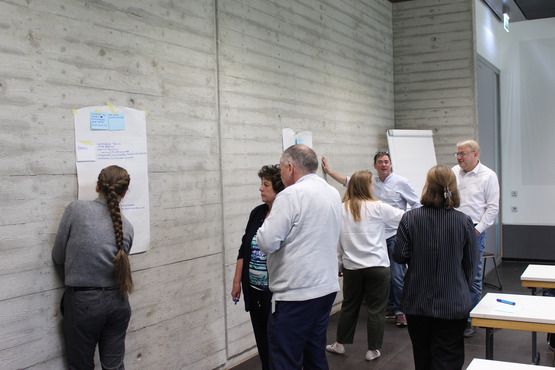
In the third discussion round on Wednesday, February 19, 2025, from 12-14 p.m., we spoke with five experts from different perspectives about current challenges, needs and solutions in the scientific community and the resulting scientific communication in the field of diversity. The discussion was followed online by around 40 participants.
These experts shared their knowledge with us at the event:
- PD Dr.in Kristin Eichhorn (Head of the Department of Modern German Literature I at the Institute of Literary Studies at the University of Stuttgart and co-founder of #IchBinHanna)
- Sophia Hohmann (Chairwoman of the Network against Abuse of Power in Science e. V.)
- Dr. Denise Bergold-Caldwell (Deputy Professor of Educational Science with a focus on gender studies at the European University of Flensburg; research, for example, on subjectivation processes through racist and gender-specific attributions)
- Marco Valero Sanchez (Talent Acquisition expert at Talents4Good for professional participation and social justice)
- Sharleen Pevec-Zimmer (research assistant at the Chair of Inclusive Education at the University of Potsdam, podcast host “(Re)searching Diversity”)
The experts reported on existing hurdles and a lack of equal opportunities that need to be changed, particularly at a systemic level, in order to avoid being dependent on the (voluntary) commitment of individuals. In many cases, working in science means temporary (part-time) positions, relocations, periods of unemployment and unpaid overtime. These factors make it particularly difficult for certain groups, such as people with care and family responsibilities, disabled people, people with a migrant background and/or who are dependent on a residence permit, to be and remain in the academic system. As a result, important knowledge is lost or certain research questions are not even asked. Another point of criticism from the experts is directed at the classification of “true scientific” and “false other” knowledge, which should be reconsidered to ensure that no knowledge is systematically excluded. Although the solution to these problems does not lie at an individual level, building networks, spaces for marginalized groups in academia to share their experiences and mentoring to realistically assess an academic career can help to support people who are disadvantaged by the system on their path. Institutional action should go far beyond diversity strategies and anti-discrimination policies.
These could include, for example
- the limitation of fixed-term contracts (and thus the creation of secure and predictable career paths),
- the recognition and implementation of research findings already gained in the field of scientists with disabilities, of color, etc. and
- science communication as a very relevant (and financially remunerated) part of the work of scientists.
If you would like to delve deeper into the topic, you can find more information via these links:
- Podcast “(RE)SEARCHING Diversity”
- Statements on academic freedom from Alice Salomon University of Applied Sciences Berlin, Christian-Albrechts-Universität zu Kiel, University of Greifswald and Europa-Universität Flensburg
In the second discussion round of the diversity discourse, we discussed with
- Prof. Dr. Simon Goebel (Professor of Social Work and Diversity at Augsburg University of Applied Sciences),
- Prof. Dr. Vassilis Tsianos (Professor of Sociological Foundations of Childhood Education at Kiel University of Applied Sciences and Chairman of the Board of the Council for Migration e. V.),
- Fabio Ghelli (Integration Media Service) and
- Vera Hanewinkel (research assistant at the University of Osnabrück in the focus Migration project to communicate scientific findings in the subject area)
current challenges, needs and solutions in science communication and (critical) policy support/advice in the field of migration. Around 40 participants attended the event and engaged in a direct exchange with the experts afterwards.
The discussion made it clear how great the challenges are that migration researchers are confronted with in public discourse. The four experts reported on examples from their work and reflected on possible solutions. For example, networks, cooperation and constant exchange between academia and the media and the use of one's own privileges to influence public discourse were named as key resources.
Useful information for academics, media professionals and the public can be found on the Mediendienst Integration website. Comprehensible information on the topics of migration, integration, forced migration and asylum can also be found on the website of the Federal Agency for Civic Education.
The panel discussion was organized as a hybrid event. Unfortunately, due to unforeseen technical problems (and the resulting lack of an audio track in large parts), a recording cannot be made available. The introductory presentation by Dr. Lisa Tometten is available for download.
On November 29, 2024, international experts reported on their research interests and findings in an online conference. These included:
- Exploring the potential of diversity for promoting social collaboration and innovation: Insights from the study of team faultlines
- Knowledge and Skills Development for Implementing the Industry 5.0 Concept
- To experience Bulgaria as a tourist destination - the advantage of being small but diverse
- Whitening Diversity: The Evanescence of Race in French and EU Diversity Politics
- Assessing the attributes of social and emotional managerial competence in terms of gender and age of entrepreneurs
- Migrationsprozesse und -treiber: Entscheidungsfindung, Politiken und Entwicklungsresultate
- Addressing and assessing the main challenges of diversity and inclusion in postmodern organizations. A systemic and integrated model
- Diverse meanings of diversity: from social justice to profit
We are pleased to be able to make this variety of topics and perspectives accessible to a public audience. Details of the event can be found on the Fair Future project website.
Around 25 participants came together online for the online discussion “AI for all: Rethinking science communication - focusing on interculturality, migration and gender” to find out more about artificial intelligence and its connection to discrimination. The three experts Angelica Lermann Henestrosa (psychologist and doctoral candidate at the Leibniz Institut für Wissensmedien in Tübingen), Katharina Mosene (political scientist, working at the Leibniz-Institut für Medienforschung │ Hans-Bredow-Institut in Hamburg) and Heiner Coors (political scientist and political educator, working at the Niedersächsische Landeszentrale für politische Bildung) examined the topic from a psychological and political science perspective and on a systemic and individual level. In the subsequent open exchange, the participants were able to ask the experts individual questions.
The discussion was opened by a brief input on theoretical foundations and the Diversity Discourses project (in German). The recording of the discussion is available on Youtube (also in German).
The Diversity Discourse team hosted the digital kick-off event on October 29, 2024. Together with PD Dr. Merle Weßel, current challenges and solutions for science communication in the field of diversity were discussed. In this context, particular attention was paid to considerations regarding the responsibility of public institutions. Around 80 participants from academia and practice engaged in an exchange and ensured a successful start to the project.
For all those who were not able to attend but are interested in the content, the presentations by Dr.in Lisa Tometten and PD Dr.in Merle Weßel are available for download (in German), as is the recording of the two lectures (on Youtube, also in German).
We look forward to further and intensive exchange at the upcoming events!
Public outreach & awareness
The impulse paper (in German) is available for download.
We are living in times when social cohesion is an important resource in dealing with right-wing extremist and anti-democratic tendencies. That is why we want to do our part to promote diversity, reduce discrimination, and help shape the scientific and public discourse on these issues in a solution-oriented manner. Diversity Discourses is a transdisciplinary project for the generation and reflection of scientific contributions to the discourse on migration and equal opportunities, led by Prof. Dr. Petia Genkova and with the collaboration of Dr. Lisa Tometten. Within the 13-month project period (August 2024 – August 2025), the current state of research on migration and equal opportunities in Germany was summarized, and target group-oriented contributions to the social debate were generated in a kick-off event. In six discussion rounds, various issues relating to diversity and discrimination were discussed, taking into account transdisciplinary perspectives.
This impulse paper with recommendations for action is aimed at those of you who deal with diversity in your professional lives (e.g., as diversity delegates, scientists, and science communicators in the field, etc.) and who would like to actively shape the discourse on diversity regardless of your professional involvement with the topic. We begin by presenting our underlying understanding of diversity and discrimination and how the public and scientific discourse on these topics have developed from 1995 to 2024. We then present challenges in science communication that are significant from our psychological perspective and how we discussed these challenges and possible solutions in the events of the Diversity Discourses. Finally, we will provide you with a summary and general recommendations for action.
We hereby share with you the ideas and key findings from our project and hope you enjoy reading it!
At the Local Policy Workshop of the European Cooperation in Science & Technology (COST) on “Age and Digitalization in the Work Context” on 07.05.2025, scientists, trade unions, employers, associations, politicians, etc. came together to develop recommendations for improvements in the EU in the form of a policy paper. Osnabrück University of Applied Sciences thus participated in the international project "COST Action CA21107 DIGI-net: Inequalities in work in later life redefined by digitalization". The main aim of the initiative is to overcome critical gaps in conceptual innovation and bridge the gap between academic research and policy to better address inequalities in work redefined by digitalization. The project is led by PhD Martina Rašticová (Mendel University in Brno) and Prof. Dr. Petia Genkova (Osnabrück University of Applied Sciences).
The policy paper has now been completed and is available for download. It identifies various fields of work in which actions should be taken to make working life more inclusive for older employees in the course of advancing digitalization. These are (1) ageism and discrimination, (2) digital transformation in the wake of artificial intelligence, (3) best practices and digitalization as an opportunity, (4) organizational and structural aspects to support older workers and (5) needs and potentials of older workers. Recommendations are given in the areas of leadership and organization, work design, artificial intelligence and digital tools, transition to retirement and consolidation of knowledge and experience. The paper is aimed at those interested from practice and science who would like to contribute to an age-appropriate and fair working environment and is now available in German and English.
In January 2025, Osnabrück University of Applied Sciences is sharing important information about diversity and (anti-)discrimination on its Instagram channel.
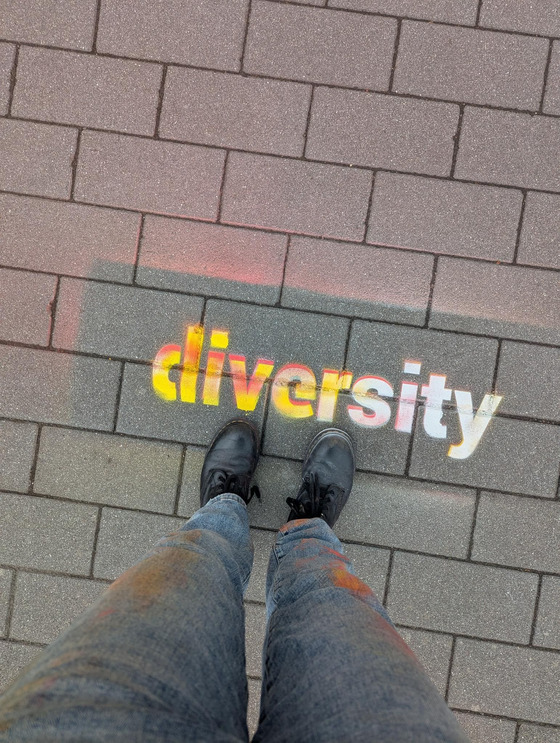
The Equal Opportunities Office at Osnabrück University of Applied Sciences organized an event in the Westerberg cafeteria on German Diversity Day 2025, where various university stakeholders involved in this area were able to present their activities ans services. The Diversity Discourses project was also represented there. Thank you for the interesting exchange with all participants and the attention it generated! A compilation of the event is available on YouTube.
There are various stakeholders at Osnabrück University of Applied Sciences who are committed to diversity and against discrimination:
As part of the seminar “Diversity Management and Digitalization”, students on the Bachelor's degree course in Business Psychology developed awareness activities that they carried out and recorded on campus. Some of the resulting videos will be published on the Instagram channel of Osnabrück University of Applied Sciences during a diversity month in January 2025.
The videos were based on scientific findings researched by the students. With the help of basic information on science communication and social media contributions, storyboards were created in order to be able to shoot the videos afterwards. The students dealt with important aspects of diversity and the workplace:
- Leadership and organization in change
- Migration and the workplace
- Women in leadership positions and the gender pay gap
- Cultural diversity in the workplace
- Work-life balance
- Changing family structures
- Digital communication and permanent availability
- Organization of work time
- Health consequences of changing working conditions and requirements
- Communication in change
- Influence of digital media and social networks on everyday life
- Digitalization and artificial intelligence
- Queerness (sexual orientation/gender identity) and work
- Age and work
- Disability and inclusion
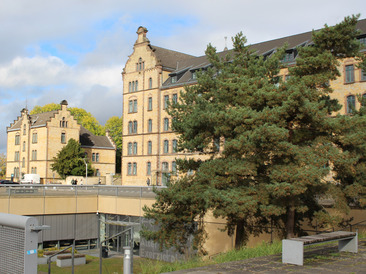
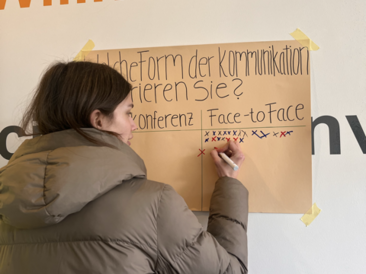

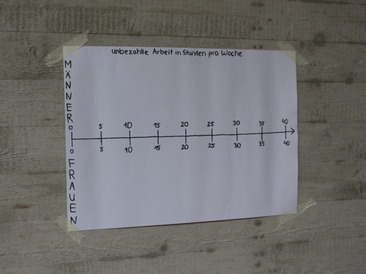
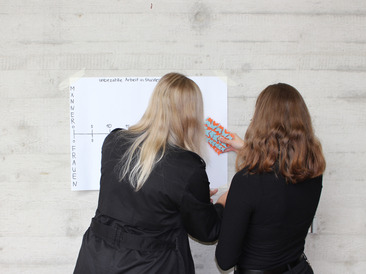
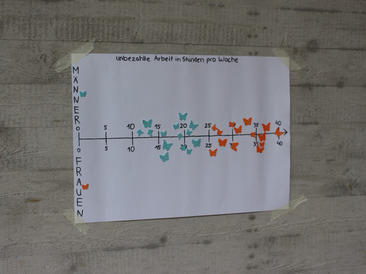
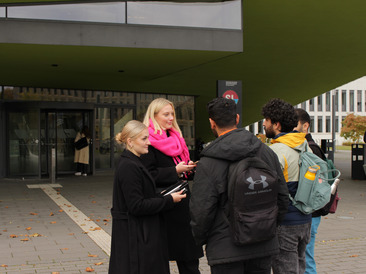
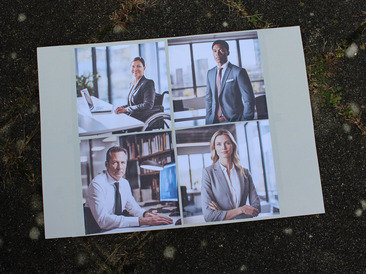
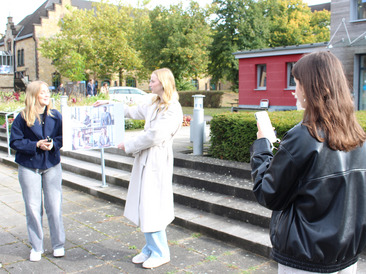
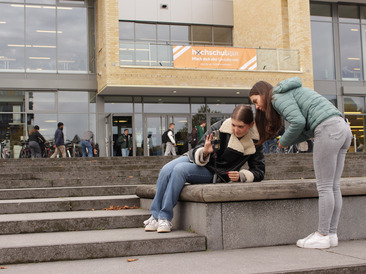
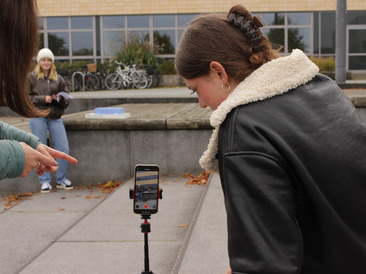
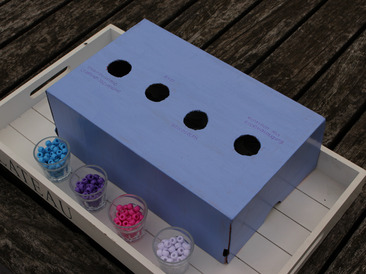
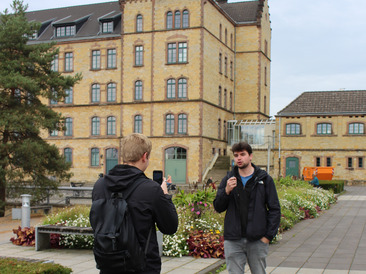
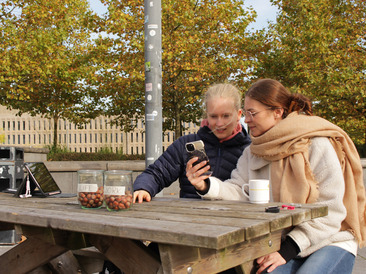

In January 2025, Osnabrück University of Applied Sciences will share important information on the topic of diversity and (anti-)discrimination on its Instagram channel.
Other material
The Cult Euro 1 Test has been nominated for the prestigious 2025 Validation Award from the Federal Ministry of Education and Research (BMBF). This award recognizes projects within the "Validation of the Technological and Societal Innovation Potential of Scientific Research (VIP+)" program that excel in translating research results into impactful applications. In the recently published list of all nominated projects, interested readers can take a look at the impressive projects.
The fully digital test Cult Euro 1 enables a quick diagnosis of intercultural competence and provides companies, public authorities, and researchers with customized, scientifically sound results. The nomination – next to very important technical and medical projects – for the 2025 Validation Award highlights the innovative strength and societal value of this project.
Further information on the test can be found on the Cult Euro 1 project website!